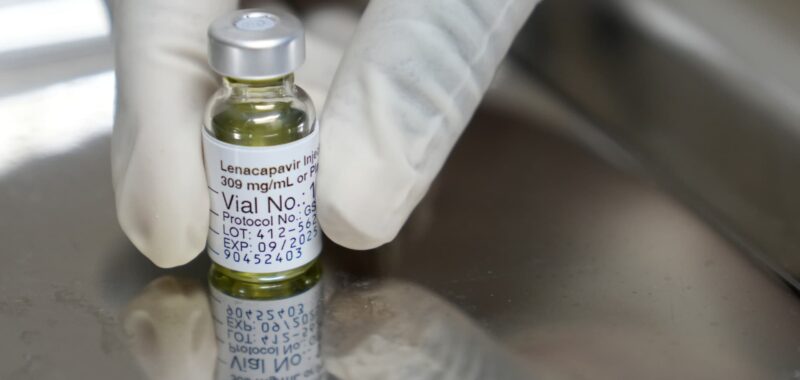A pharmacist holds a vial of lenacapavir, the new HIV prevention injectable drug.
Nardus Engelbrecht | AP
Gilead‘s twice-yearly shot reduced HIV infections by 96% in a second large study, the company said Thursday.
The positive phase three trial data on lenacapavir sets the stage for likely approval by the U.S. Food and Drug Administration for HIV prevention.
“Now that we have a comprehensive dataset across multiple study populations, Gilead will work urgently with regulatory, government, public health and community partners to ensure that, if approved, we can deliver twice-yearly lenacapavir for PrEP worldwide, for all those who want or need PrEP,” said Gilead CEO Daniel O’Day in a statement.
PrEP or, pre-exposure prophylaxis, is a medication taken to prevent getting HIV, according to the Centers for Disease Control and Prevention.
Gilead shares climbed more than 1% on Thursday.
The company said 99.9% of participants who received lenacapavir did not acquire HIV, with two cases among 2,180 people. The trial included cisgender men, transgender men, transgender women and gender non-binary people who have sex with partners assigned male at birth.
There were nine cases of HIV in a group of more than 1,000 people assigned to receive Truvada, Gilead’s older daily pill used for prevention and treatment. The company said lenacapavir was 89% more effective than Truvada in the study.Â
Lenacapavir and Truvada were also “generally well-tolerated” by patients with no new safety concerns, according to Gilead. The drugmaker plans to present detailed data at an upcoming medical conference.Â
Gilead in June also said lenacapavir was 100% effective at preventing HIV in another late-stage trial with cisgender women. None of the roughly 2,000 women in the study who received the shot had contracted HIV by the time of an interim analysis conducted in September.Â
In a research note Thursday, Jefferies analyst Michael Yee said overall the data on lenacapavir is “solid and consistent across both studies” and populations.
The trial results should lead to an FDA approval and launch in the market by 2025, Yee said.Â
Subscribe to CNBC on YouTube.

